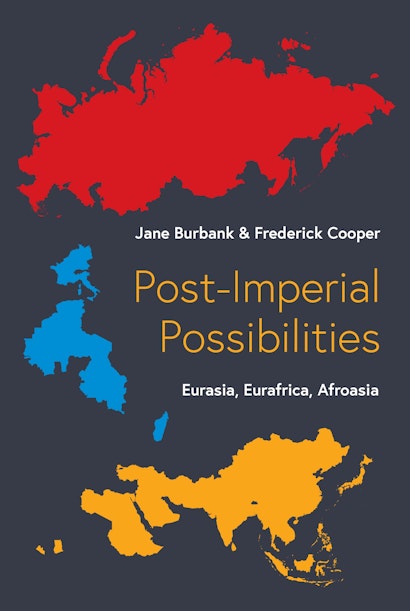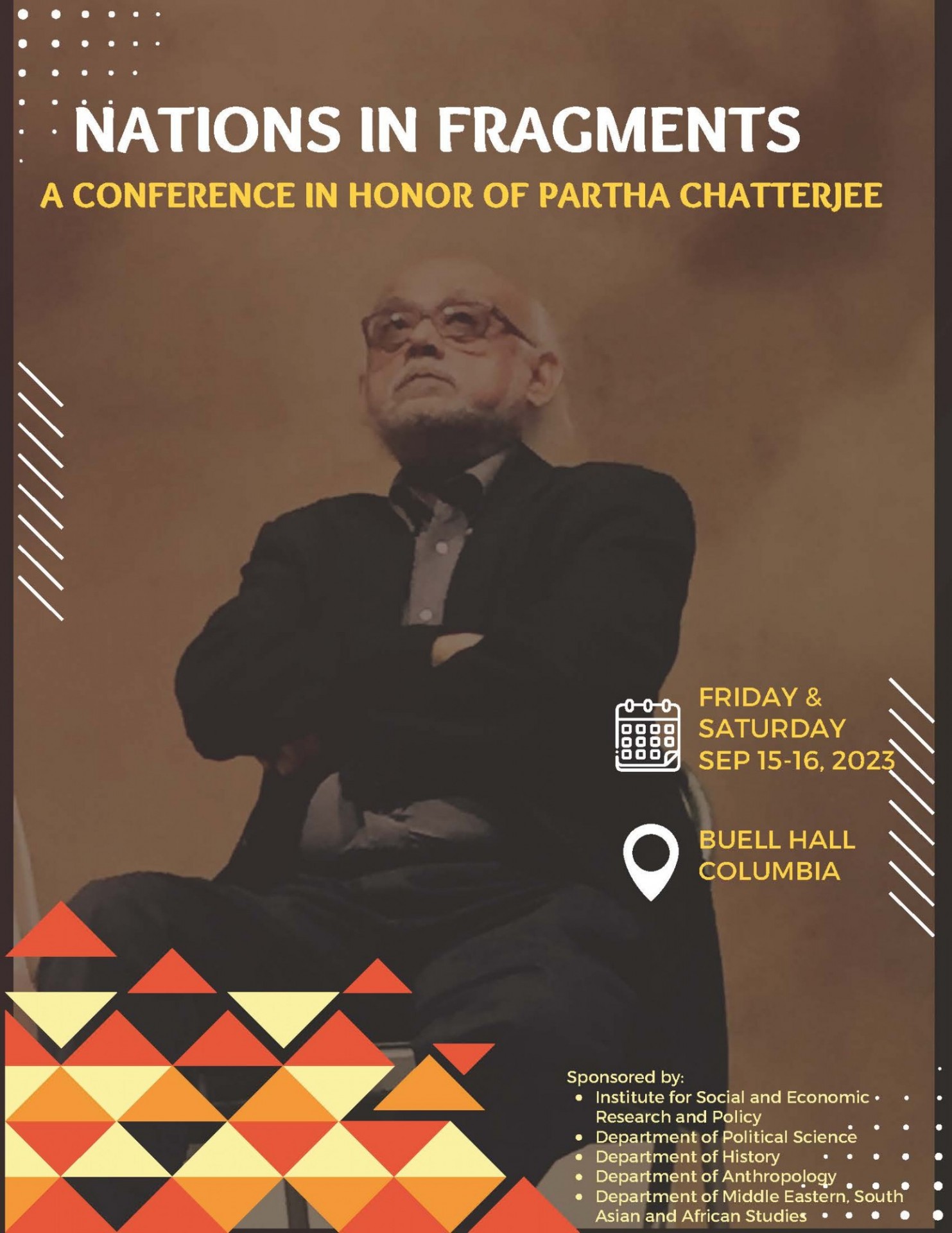Global Asia
at
Center for the Study of Africa and the African Diaspora

All posts by David Ludden
POSTPONED
A Book Discussion with Francis Cody (University of Toronto)
of his new book
The News Event: Popular Sovereignty in the Age of Deep Mediatization (University of Chicago Press, 2023)
with
Arjun Appadurai (NYU Emeritus)
Lily Chumley (NYU)
and Debashree Mukherjee (Columbia)
In the hypermediated world of Tamil Nadu, Francis Cody studies how “news events” are made. Not merely the act of representing events with words or images, a “news event” is the reciprocal relationship between the events being reported in the news and the event of the news coverage itself. In The News Event, Cody focuses on how imaginaries of popular sovereignty have been remade through the production and experience of such events. Political sovereignty is thoroughly mediated by the production of news. And subjects invested in the idea of democracy are remarkably reflexive about the role of publicly circulating images and texts in the very constitution of their subjectivity. The law comes to stand as both a limit and positive condition in this process of event making, where acts of legal and extralegal repression of publication can also become the stuff of news about news makers. When the subjects of news inhabit multiple participant roles in the unfolding of public events, when the very technologies of recording and circulating events themselves become news, the act of representing a political event becomes difficult to disentangle from that of participating in it. This, Cody argues, is the crisis of contemporary news making: the news can no longer claim exteriority to the world on which it reports.
Francis Cody is an Associate Professor in the Department of Anthropology and the Asian Institute at the University of Toronto, where he is also the Director of the Centre for South Asian Studies. His research focuses on politics and media in southern India. His first book, The Light of Knowledge: Literacy Activism and the Politics of Writing in South India (Cornell 2013), won the 2014 Edward Sapir Book Prize awarded by the Society for Linguistic Anthropology. Cody’s new book, The News Event: Popular Sovereignty in the Age of Deep Mediatization (Chicago 2023) explores questions of law, technology, and violence in the context of journalism and populist politics.
Sponsored by

with wine and cheeseCOME ONE AND COME ALL !!!
GLOBAL ASIA COLLOQUIUUM
November 3, 2023
Book Launch for
Jane Burbank and Frederick Cooper, Post-Imperial Possibilities: Eurasia, Eurafrica, Afroasia (Princeton University Press, 2023)
53 Washington Square South (King Juan Carlos Center) Rm 701, 4-7pm
With Discussants: Sandrine Kott (Professor of Modern European History at the University of Geneva. Visiting Professor of History, NYU), Jessica Pisano (Professor of Politics at The New School for Social Research), and Madina Thiam (Assistant Professor of History NYU)
A history of three transnational political projects designed to overcome the inequities of imperialism
HERE IS THE RECORDING (not great, with echo, but functional; because the recording is from a mic in a zoom screen in a meeting room, distant from speakers, rather with close-up mics in an all-zoom meeting)
(with wine and cheese)
|
||
|
Nov. 17 4-6pm Ezgi Cakmak – Reminders of the Imperial Nostalgia
|
||
|
GLOBAL ASIAN URBANISM IN NEW YORK CITY
Brainstorming at 53 Wash Sq So KJCC Rm 701
Toward a project to sustain the study of multi-ethnic neighborhoods in New York City which have been transformed by mobile settlers from all over Asia in the last half-century.
Details TBA
Symposium— Metropolitan Museum of Art
Sept 29-30
Tree and Serpent:
Early Buddhist Art in India, 200 BCE–400 CE
Join an international group of scholars for a two-day symposium presenting new scholarship around the themes explored in the exhibition Tree and Serpent: Early Buddhist Art in India, 200 BCE–400 CE. The keynote lecture is presented by Gregory Schopen, Distinguished Professor Emeritus of Asian Languages and Cultures, University of California, Los Angeles.
Free with Museum admission, though advance registration is required.
Day 1: Friday, September 29, 10:30 am–5:30 pm
Session 1: Origins of Buddhist Art in India
Session 2: Southern Buddhism of Andhradesa
Keynote lecture
Day 2: Saturday, September 30, 10:30 am–5 pm
Session 3: Revisiting Andhradesa Art History
Session 4: India and the World: Looking West
Session 5: India and the World: Looking East
Organized by The Met in cooperation with New York University Global Asia, Center for Global Asia NYU Shanghai, and the Lakshmi Mittal and Family South Asia Institute, Harvard University.
This symposium is made possible by the Fred Eychaner Fund.
Hafsa Kanjwal
Sep 22 4-7pm KJCC 701 (53 Washington Square South)
Book discussion of Hafsa Kanjwal, Colonizing Kashmir: State-building under Indian Occupation, Stanford University Press, 2023. [In-person in King Juan Carlos I of Spain Center (KJCC Room 701, 53 Wash Sq South) auditorium]
with discussants Saadia Toor (CUNY), David Ludden (NYU), and Dina M. Siddiqi
The Indian government, touted as the world’s largest democracy, often repeats that Jammu and Kashmir—its only Muslim-majority state—is “an integral part of India.” The region, which is disputed between India and Pakistan, and is considered the world’s most militarized zone, has been occupied by India for over seventy-five years. In this book, Hafsa Kanjwal interrogates how Kashmir was made “integral” to India through a study of the decade long rule (1953-1963) of Bakshi Ghulam Mohammad, the second Prime Minister of the State of Jammu and Kashmir. Drawing upon a wide array of bureaucratic documents, propaganda materials, memoirs, literary sources, and oral interviews in English, Urdu, and Kashmiri, Kanjwal examines the intentions, tensions, and unintended consequences of Bakshi’s state-building policies in the context of India’s colonial occupation. She reveals how the Kashmir government tailored its policies to integrate Kashmir’s Muslims while also showing how these policies were marked by inter-religious tension, corruption, and political repression.
RSVP HERE to attend in person
Hafsa Kanjwal is an assistant professor of South Asian History in the Department of History at Lafayette College in Easton, Pennsylvania, where she teaches courses on the history of the modern world, South Asian history, and Islam in the Modern World. As a historian of modern Kashmir, she is the author of Colonizing Kashmir: State-building Under Indian Occupation (Stanford University Press, 2023), which examines how the Indian and Kashmir governments utilized state-building to entrench India’s colonial occupation of Kashmir in the aftermath of Partition. Colonizing Kashmir historicizes India’s occupation of Kashmir through processes of emotional integration, development, normalization, and empowerment to highlight the new hierarchies of power and domination that emerged in the aftermath of decolonization. Hafsa has written and spoken on her research for a variety of news outlets including The Washington Post, Al Jazeera English, and the BBC. She received her Ph.D. in History and Women’s Studies from the University of Michigan and a Bachelors in Regional Studies of the Muslim World from the School of Foreign Service at Georgetown University.
Saadia Toor is Associate Professor of Sociology at the College of Staten Island, City University of New York. She has a long history of work within progressive political organizations and groups in Pakistan such as the Women’s Action Forum and the Mazdoor Kissan Party. Dr. Toor’s scholarship revolves around issues of culture, nationalism, gender/sexuality, state formation, and international political economy. A special issue of Women’s Studies Quarterly on the theme of Solidarity co-edited by Dr Toor was published in November 2014. Among her publications are The State of Islam: Culture and Cold War Politics in Pakistan (Pluto Press, 2011), and articles in Interventions: International Journal of Postcolonial Studies, Inter-Asia Cultural Studies, Cultural Dynamics, and Child Labor World Atlas: A Reference Encyclopedia, among other venues.
David Ludden is Professor of Political Economy and Globalization and Chair of the Department of History at New York University. Ludden has directed South Asia programs at Penn, the Social Science Research Council, the Fulbright Senior Scholars program (CIES), the South Asia programs at the Social Science Research Council, and NYU. He has served as President of the Association for Asian Studies and Chair of the NYU Department of History. He has published three monographs on South Asian History and dozens of peer reviewed articles and chapters, and also edited four scholarly volumes and translated a collection of ancient Tamil poems. The breadth of his scholarship includes serious studies of ancient, medieval, and early-modern history, as well as deep research into modern history and contemporary economic and social development.
Dina M. Siddiqi is Clinical Associate Professor in the School of Liberal Studies at New York University. Her research, grounded in the study of Bangladesh, joins development studies, transnational feminist theory, and the anthropology of Islam and human rights. She has published extensively on the global garment industry, non-state gender justice systems, and the cultural politics of Islam and nationalism in Bangladesh. Professor Siddiqi is a member of the New York University Society of Fellows, on the advisory board of Dialectical Anthropology, and on the editorial board of Routledge’s Women in Asia Publication Series. She is on the Executive Committee of the American Institute of Bangladesh Studies (AIBS), and an Advisory Council member of the South Asian feminist network, Sangat. She is currently engaged in a project on economic development, discourses of empowerment and the travels of civilizational feminisms.
RSVP HERE to attend in person
|
||
|





